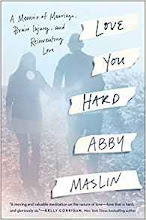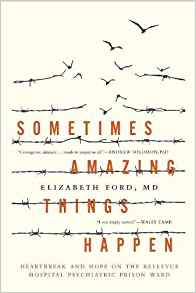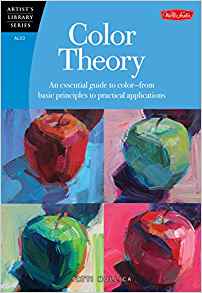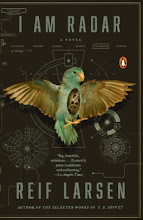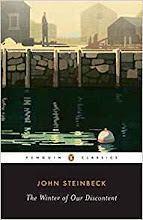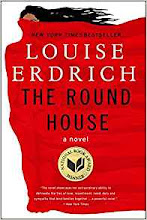The poll results are in: out of eleven respondents, four (36%) believe that fiction writers and poets write primarily to communicate with others, while seven (64%) believe that those writers write first for themselves as artistic expression.
When applying the same question only to themselves, just two (18%) said they write primarily for others, while nine (82%) said they write for themselves first. The response rate was just under fifty percent, with eleven out of twenty-four writers answering (including myself).
As I mentioned before, the questions can become more complex as they are discussed, and judging by the comments (thanks, Andi and Jane), the answers can be quite involved. Although the poll may have seemed simplistic and inadequate, I believe many qualified answers can actually fall into one or the other category.
For instance, writing to preserve history can be considered writing for others, since this really goes to the title of this and the previous blog entries; if history is recorded but no one reads it, is it really preserved? One may write down one's family history and not care at the time if it remains hidden in a desk drawer or forgotten in an attic, but if no one ever discovers and reads it years or decades later, would the writer have considered the effort worthwhile?
Or consider writing to make sense of an experience. This could fall under writing for oneself, since the person benefitting from bringing order out of chaos is the writer. It may subsequently affect or enrich others, too, but the making sense part is coming from the writer, primarily for the writer.
Personally, I write to express myself as a creative outlet. I would like others to read my stories, but if no one does, that's okay; it does not devalue what I have written or diminish my experience of writing, and it's not why I write in the first place. If I were on a desert island with no chance of being rescued or of my work being discovered on the island years later, I would still write (provided I could re-create the pen, ink, and paper).
Thanks to my friend Guy for asking an important, relevant question and sparking discussion among my writer friends far beyond the casual lunchtime chat that gave birth to the poll!
Sunday, December 11, 2011
Sunday, November 27, 2011
If a Tree Falls in the Woods...
A friend asked me a philosophical question today: Do writers write primarily for themselves, or do they write for someone else's benefit?
I have a strong opinion about this, and we discussed this question for quite some time. I am going to assert my position later, but my friend's belief is that writers' primary motivation is to communicate, to pass on to others something they want to say, and that that is the whole point of writing. If no one reads your writing, there is no point in having written.
When we finally had to get on with our separate afternoons, I told him I would poll my writer friends and let him know the results. This is where you come in!
As with most polls, there's a whole lot wrapped up in the questions and answers, but I tried to make it as simple as possible. Let's assume we are only talking about fiction and poetry. The water gets murky very quickly, once we even start talking about the questions, let alone the answers.
Just two questions. The first is your belief about most creative writers in general, while the second is the same question applied to yourself:
This is my first Poll Daddy poll, so I'm not sure how this works, but I did set both polls to allow commenting (good luck with that). If all else fails, send me an email if you have other thoughts to share.
I'll post my own thoughts after allowing some time for response. Thanks for your help!
I have a strong opinion about this, and we discussed this question for quite some time. I am going to assert my position later, but my friend's belief is that writers' primary motivation is to communicate, to pass on to others something they want to say, and that that is the whole point of writing. If no one reads your writing, there is no point in having written.
When we finally had to get on with our separate afternoons, I told him I would poll my writer friends and let him know the results. This is where you come in!
As with most polls, there's a whole lot wrapped up in the questions and answers, but I tried to make it as simple as possible. Let's assume we are only talking about fiction and poetry. The water gets murky very quickly, once we even start talking about the questions, let alone the answers.
Just two questions. The first is your belief about most creative writers in general, while the second is the same question applied to yourself:
This is my first Poll Daddy poll, so I'm not sure how this works, but I did set both polls to allow commenting (good luck with that). If all else fails, send me an email if you have other thoughts to share.
I'll post my own thoughts after allowing some time for response. Thanks for your help!
Sunday, February 6, 2011
Life Re-Examined, Again
Dear Dianne,
After three consecutive 13- to 14-hour days at the Association of Writers and Writing Programs (AWP) conference, I hope you are readjusting to life back home. I myself feel unmoored and am trying to regain my bearings. Yes, it was wonderful being with 8,500 writers, agents, publishers, students, teachers, and editors, all focused on the art of literature. But for me, it is more than coming down off the high of community; it's dealing with the same question that arises after attending a week-long workshop at the Fine Arts Work Center (FAWC) in Provincetown: what am I doing with my life? What should I be doing with my life? And if it's something different than what I'm doing now, do I have the guts - and the resources - to make the change?
The central question is that of the MFA, which has become the bachelor's degree of the writing world. You and I both feel the private sting of our perceived, though unspoken, snubbing at this seeming deficiency, even if our detractors exist only in an unidentifiable aggregate. (I am just waiting for the day when the first question people ask is, "And where did you get your MFA?")
We have both been through at least five writing workshops, which is equal to the requirement of many MFA programs. And you have certainly exceeded the coursework requirements as a former creative writing and literature professor and chair of an English department. You have also completed (and submitted for publication) a book-length manuscript, which is the same as an MFA thesis. You are missing only those three letters after your name.
I, however, am lacking the literature part of my education, try as I might to address it by reading on my own and using the resources now available on the Intranet to help me understand. Another FAWC classmate sent me the reading lists from her program at the Bennington Writing Seminars to help me out, but I'm not sure how I could ever read everything on those lists, as well as the works on my own lists.
So yesterday I once again struggled with The Question, one which becomes harder to answer the older I get. And beyond getting the degree, what is the financial tradeoff of a post-MFA career (assuming I could identify non-teaching options), and is it feasible to even consider in DC? That question is pretty easily answered, so the next question is whether I would be willing to relocate to a place with a lower cost of living.
More fundamentally, the question that becomes not only harder but more insistent with age is: what do I want to spend the rest of my career doing? Over the past three days, we were surrounded by many people who spend their time reading people's writing and considering, discussing, and arguing questions of competence, meaning, and relevance, as well as asserting subjective assessments of whether a story is good. Wow, I wonder what that's like, I thought.
But as the editor of Tin House said in one session, "we are you"; that's what we all do, and they are no different from us. At the time, I thought that was a nice thing to say but that as editors, they were on a different plane. Sitting here reflecting on it today, though, I realize that is indeed what we do in workshop: analyze a piece, discuss its merits and shortcomings, provide feedback to the writer, and privately decide which stories we think are the best, which show potential, and which aren't quite ready yet. While we don't do it full-time, we already do know the meat of at least the art side of what they do, and it is indeed wonderful. How many times during a week in P'town have I felt consciously aware of how great it is to spend our days reading and talking about each other's writing?
You don't get paid much to edit and publish fiction. But as Daniel Slager, publisher of Milkweed Editions, said in that same session, he gets paid to read, and he loves it. Though not by the world's standards, it's a privileged life.
And in the end, aren't ours the only standards that matter? At the end of our lives, how will we ourselves judge what we have done with them? Who cares what anyone else says about it?
So, Dianne, in my opinion you can be proud of all you have accomplished. As I've said before, enjoy your retirement. Take satisfaction in what you have done, not only for yourself but for so many young people (especially in opening their literary worlds beyond the white male canon).
The possibilities in my own life remain open, waiting for me to act. I hope and pray for the courage to do whatever is right for me. Thanks again for calling my attention to AWP being in my own backyard this year, thus spurring me to re-examine the bigger questions.
In gratitude for our writing friendship,
Mark
After three consecutive 13- to 14-hour days at the Association of Writers and Writing Programs (AWP) conference, I hope you are readjusting to life back home. I myself feel unmoored and am trying to regain my bearings. Yes, it was wonderful being with 8,500 writers, agents, publishers, students, teachers, and editors, all focused on the art of literature. But for me, it is more than coming down off the high of community; it's dealing with the same question that arises after attending a week-long workshop at the Fine Arts Work Center (FAWC) in Provincetown: what am I doing with my life? What should I be doing with my life? And if it's something different than what I'm doing now, do I have the guts - and the resources - to make the change?
The central question is that of the MFA, which has become the bachelor's degree of the writing world. You and I both feel the private sting of our perceived, though unspoken, snubbing at this seeming deficiency, even if our detractors exist only in an unidentifiable aggregate. (I am just waiting for the day when the first question people ask is, "And where did you get your MFA?")
We have both been through at least five writing workshops, which is equal to the requirement of many MFA programs. And you have certainly exceeded the coursework requirements as a former creative writing and literature professor and chair of an English department. You have also completed (and submitted for publication) a book-length manuscript, which is the same as an MFA thesis. You are missing only those three letters after your name.
I, however, am lacking the literature part of my education, try as I might to address it by reading on my own and using the resources now available on the Intranet to help me understand. Another FAWC classmate sent me the reading lists from her program at the Bennington Writing Seminars to help me out, but I'm not sure how I could ever read everything on those lists, as well as the works on my own lists.
So yesterday I once again struggled with The Question, one which becomes harder to answer the older I get. And beyond getting the degree, what is the financial tradeoff of a post-MFA career (assuming I could identify non-teaching options), and is it feasible to even consider in DC? That question is pretty easily answered, so the next question is whether I would be willing to relocate to a place with a lower cost of living.
More fundamentally, the question that becomes not only harder but more insistent with age is: what do I want to spend the rest of my career doing? Over the past three days, we were surrounded by many people who spend their time reading people's writing and considering, discussing, and arguing questions of competence, meaning, and relevance, as well as asserting subjective assessments of whether a story is good. Wow, I wonder what that's like, I thought.
But as the editor of Tin House said in one session, "we are you"; that's what we all do, and they are no different from us. At the time, I thought that was a nice thing to say but that as editors, they were on a different plane. Sitting here reflecting on it today, though, I realize that is indeed what we do in workshop: analyze a piece, discuss its merits and shortcomings, provide feedback to the writer, and privately decide which stories we think are the best, which show potential, and which aren't quite ready yet. While we don't do it full-time, we already do know the meat of at least the art side of what they do, and it is indeed wonderful. How many times during a week in P'town have I felt consciously aware of how great it is to spend our days reading and talking about each other's writing?
You don't get paid much to edit and publish fiction. But as Daniel Slager, publisher of Milkweed Editions, said in that same session, he gets paid to read, and he loves it. Though not by the world's standards, it's a privileged life.
And in the end, aren't ours the only standards that matter? At the end of our lives, how will we ourselves judge what we have done with them? Who cares what anyone else says about it?
So, Dianne, in my opinion you can be proud of all you have accomplished. As I've said before, enjoy your retirement. Take satisfaction in what you have done, not only for yourself but for so many young people (especially in opening their literary worlds beyond the white male canon).
The possibilities in my own life remain open, waiting for me to act. I hope and pray for the courage to do whatever is right for me. Thanks again for calling my attention to AWP being in my own backyard this year, thus spurring me to re-examine the bigger questions.
In gratitude for our writing friendship,
Mark
Subscribe to:
Posts (Atom)

